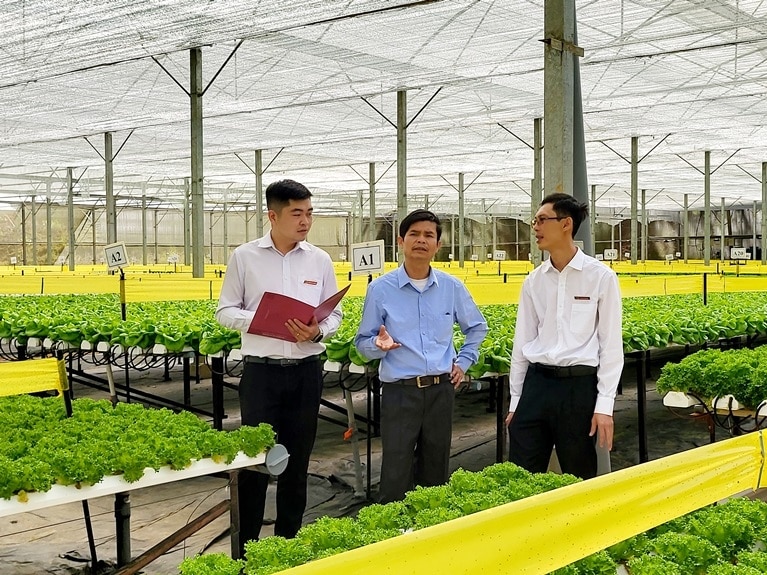
In recent times, Vietnam has been proactive and actively implementing many activities in accordance with international commitments and agreements to respond to climate change, towards sustainable development. In particular, at the 26th, 27th and 28th Conferences of the United Nations Framework Convention on Climate Change, Vietnam has reaffirmed its strong commitment to the goal of net zero emissions by 2050.
The State Bank of Vietnam (SBV) has had many policies and orientations to encourage credit institutions (CIs) to make green transformation and manage environmental risks in credit granting activities through: Issuing the Project on developing green banks in Vietnam; Orientation on developing green banks in the Banking Industry Development Strategy to 2025, with a vision to 2030. As of September 30, 2023, outstanding green credit balance reached more than VND 564 trillion, accounting for about 4.4% of total outstanding debt of the entire economy . In addition, sustainable development is becoming an inevitable trend in the business strategy of many banks in the world and has become a mandatory criterion in the ratings of a number of international credit rating organizations.
In order to implement the policies and orientations of the Government and the State Bank on green banking development as well as towards international standards on sustainable development, the Bank for Agriculture and Rural Development of Vietnam (Agribank) is implementing many practical action programs to implement ESG synchronously and effectively from the Board of Directors to each employee, creating a great momentum, contributing to environmental protection, combating climate change, and moving towards sustainable development.
Determining to implement ESG on all three pillars of Environment, Social and Governance, Agribank has been implementing specific solutions to implement ESG, including: establishing a Steering Committee and an ESG Implementation Support Team consisting of senior staff and a team of experts to research and implement ESG management practices synchronously and effectively in all aspects of Agribank's operations; integrating environmental and social risk management in business operations and Agribank's general risk management program according to a suitable roadmap; not granting new credit or restricting credit for projects, production, business and service plans in industries and professions in the list of industries and professions excluded or restricted from credit granting by Agribank; Strengthen communication, training and education to spread and instill the idea of sustainable development throughout the entire Agribank system from the Board of Directors to each employee, and actively communicate to customers about ESG and sustainable development; promote the implementation of comprehensive finance, digital transformation, sustainable product and service development; effectively carry out gender equality, social security activities, and community work.
From the above specific steps, Agribank has achieved initial results in the journey of implementing ESG and moving towards sustainable development.
Regarding the environmental pillar , Agribank actively implements the green credit program and periodically reports to the State Bank on the implementation results. By September 30, 2023, the outstanding loans for the green sector at Agribank reached more than 12 trillion VND, accounting for about 1% of the total outstanding loans, with nearly 42,000 customers borrowing capital. In addition, Agribank is implementing programs to "green" credit such as: preferential credit program serving "clean agriculture" with loan interest rates reduced from 0.5%/year to 1.5%/year compared to preferential loan interest rates for the agricultural and rural sectors; expanding investment in lending to projects related to environmental protection sponsored by international financial institutions such as: improving the quality and safety of agricultural products and developing biogas programs; coastal resource projects for sustainable development; disaster risk management; supporting low-carbon agriculture; providing clean water and sanitation in rural areas of the Red River Delta; wind power; solar power; providing credit for the fight against drought and salinity in the Mekong Delta and the Central Highlands... Agribank has also issued regulations on environmental risk management in Agribank's credit granting activities. This is an important legal framework guiding relevant units at the Head Office and branches to identify, assess the level of environmental risks and implement environmental risk management in credit granting activities.
From Agribank's capital, many large-scale agricultural production models applying high technology have been and are being formed in all regions of Vietnam, creating an agricultural production chain, contributing to creating agricultural products of high quality and value, bringing practical efficiency such as: Vegetable, flower and fruit growing model (Lam Dong); large-scale fields (Can Tho); livestock (Bac Ninh, Lao Cai, Ha Nam); investment in machinery and equipment for agriculture (Tien Giang, Long An); corn (Son La); safe fruits and vegetables in the Central Highlands provinces (Dak Nong, Kon Tum); dragon fruit according to VietGap standards (Binh Thuan)...
Agribank has been implementing many action programs associated with the message "For a green future" - a consistent goal from awareness to action of nearly 40,000 Agribank staff. Actively and effectively implementing the movement "Agribank - One million trees, more trees, more life", in a year of persistently planting trees to green the country, Agribank's program of planting 1 million trees has been completed, promoting the effect of greening bare land and hills; increasing green space in public areas, schools and improving air pollution in residential areas and large cities. Building and implementing projects closely following the program "Solving plastic and nylon pollution" launched by the Prime Minister and the United Nations. Specifically, at Agribank branches nationwide, many programs and activities have been implemented such as: "Say no to plastic waste", "Say no to smoking", "Preserve a green, clean and beautiful working environment", "Join hands to clean the marine environment" in 28 coastal provinces/cities, organize cycling roadshows in major cities to convey the message "Let's act together to reduce emissions into the environment", respond to the tree planting movement... At the transaction counter area, customers are given money bags made of environmentally friendly materials to replace disposable plastic bags; given thermos bottles instead of plastic bottles and disposable straws. Agribank hopes that the message "For a green future" will spread more and more strongly in the community, thereby building an ecosystem, protecting the living environment, human health and sustainable development of the country.
For the Social pillar , in order to promote comprehensive financial implementation, Agribank actively implements many credit policies to serve rural agricultural development with 07 policy credit programs and 02 national target programs to help people in agricultural, rural, remote and isolated areas access necessary financial resources more easily at reasonable costs, improve their lives and develop their businesses while actively supporting customers through close links with loan groups, farmers' associations, and women's associations. This model has been effective for many years due to its quick procedures, effective capital flow to people, and very low bad debt rate. With the active participation of the Central Committee of the Vietnam Women's Union, together with the associations, it has contributed to the effectiveness of the loan group model, creating conditions for women to promote their role in family economic development and promoting gender equality. Based on technology, Agribank has deployed a series of modern payment products and services such as: border trade payments; bilateral payments with commercial banks, the State Treasury; state budget collection with the General Department of Taxation, the General Department of Customs, the State Treasury; bill payments; money transfers, bill payments via SMS; Internet Banking; E-Mobile Banking; payment cards..., actively contributing to promoting non-cash payments.
Agribank demonstrates its social responsibility through actively implementing social security activities. In 2022, Agribank will allocate more than 600 billion VND to sponsor localities with poor districts, support the construction of more than 2,000 gratitude houses and solidarity houses for the poor and policy beneficiaries nationwide, 17 school buildings and classrooms, 06 medical stations and facilities, donate medical examination and treatment packages to the poor, and disaster relief activities...
Internally, Agribank focuses on ensuring income, social welfare and legal rights for employees. Total salary and allowances for employees in 2022 is 13,828 billion VND, an increase of 2.2% compared to 2021. The average salary and allowances of Agribank employees are 29.77 million VND/person. In addition to salaries and allowances, in recent years, employees at Agribank have been fully cared for in all aspects of material and spiritual life, employment, working conditions and means, income, rest benefits, reward regimes as well as encouragement to study, improve knowledge and professional qualifications, helping employees to trust, feel secure in their work, and contribute to the cause of building and developing Agribank. The regimes for employees are fully implemented. 100% of employees are covered by social insurance, health insurance, and unemployment insurance. 100% of employees are fully vaccinated against Corona Virus and extended to relatives in need; employees affected by the Covid-19 epidemic are supported with medical examination and treatment costs, and are cared for by the Trade Union when necessary. Agribank also organizes comprehensive medical examination and treatment once a year for all employees and twice a year for female employees. Agricultural Bank Insurance Company (ABIC) provides free medical examination and treatment insurance for employees at many units and preferential fees for relatives.
Agribank has a policy of enhancing the role of women in the leadership apparatus. There are over 22,000 female employees out of a total of more than 40,000 employees, accounting for nearly 54%; women have truly promoted their role in Agribank's operations with 05 female leaders at the highest level of Agribank, 1,073 female officers participating in the Board of Directors of Departments, Centers and equivalent at the Head Office and the Board of Directors of branches. In their positions, female employees of Agribank have demonstrated their mettle, capacity, sense of responsibility, moral qualities, efforts to work, study, and strive for comprehensive development. Agribank has also issued full documents to ensure the rights and legitimate interests of female employees, giving priority to planning, training, and appointing female leaders at all levels at Agribank.
Regarding the Governance pillar , Agribank focuses on the following criteria: building an ESG governance structure, transparency and accountability, risk management and anti-corruption. Currently, Agribank has not yet built a specialized ESG governance apparatus or department. However, on July 27, 2023, Agribank established a Steering Committee and a Steering Committee to support the ESG implementation in the Agribank system with senior personnel, clearly stating that the core task of the Steering Committee is to develop a comprehensive ESG implementation project at Agribank in the short and long term. Agribank conducts transparent and public information disclosure in accordance with the provisions of law and internal regulations through the following channels: Agribank's website; Independent audited financial statements; Annual reports; Periodic and irregular statistical reports as required by the State Bank and other competent authorities; Quarterly/annual financial statements of the Bank. Agribank has developed mechanisms, regulations and implemented information disclosure; in the internal labor regulations and Agribank culture, requiring employees to comply with anti-corruption and anti-bribery; established organizational structure, functions, tasks, and main mechanisms to ensure separation between management and operation, between risk prevention lines; publicly disclosed salaries and incomes of the Board of Members, Executive Board, and Supervisory Board in the Financial Report; and declared assets and incomes in accordance with the provisions of law.
To take advantage of opportunities and promote advantages, Agribank is researching and gradually implementing a number of solutions to enhance the consistency and effectiveness in ESG implementation at Agribank, specifically as follows:
Firstly , build and perfect institutional documents, improve capacity and management efficiency in line with the goal of promoting green credit activities, green growth and sustainable development;
Second , research and develop products and services that meet green standards and sustainable development;
Third, strengthen international integration and cooperation to promote resource mobilization for green growth and sustainable development;
Fourth , promote digital transformation to improve competitiveness, expand customers' access to banking services, and ensure information security and safety in banking operations;
Fifth , conduct training, fostering, and developing human resources in line with the goal of implementing green growth and applying ESG in banking operations.
Sixth , strengthen communication and training activities to spread and instill sustainable development thinking throughout the entire Agribank system from the Board of Directors to each employee, while actively communicating to customers awareness of ESG and sustainable development.
Seventh , promote green procurement for projects and tasks using Agribank's funding sources according to current regulations; prioritize the use and consumption of environmentally friendly products and services certified with the Vietnam Eco-Label in procurement activities within the Agribank system.
Hai Yen


![[Photo] Closing ceremony of the 18th Congress of Hanoi Party Committee](https://vphoto.vietnam.vn/thumb/1200x675/vietnam/resource/IMAGE/2025/10/17/1760704850107_ndo_br_1-jpg.webp)







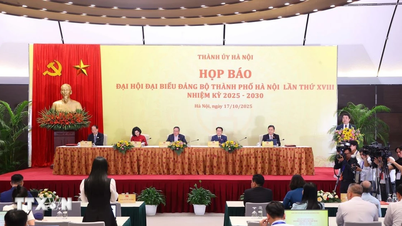



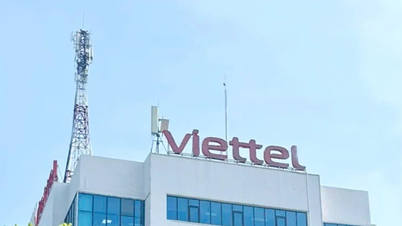

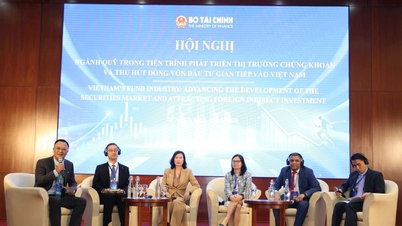

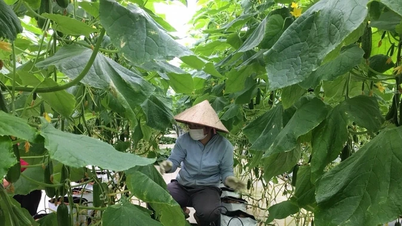


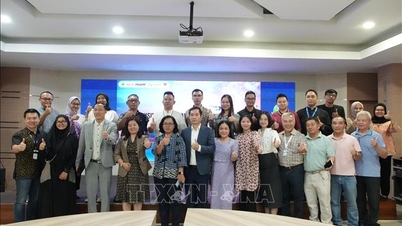



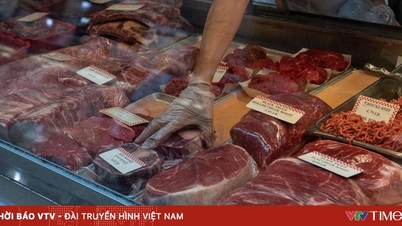
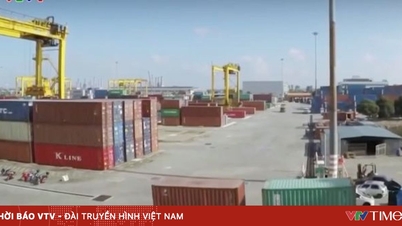











![[Photo] Nhan Dan Newspaper launches “Fatherland in the Heart: The Concert Film”](https://vphoto.vietnam.vn/thumb/1200x675/vietnam/resource/IMAGE/2025/10/16/1760622132545_thiet-ke-chua-co-ten-36-png.webp)





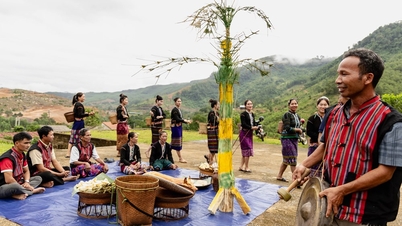



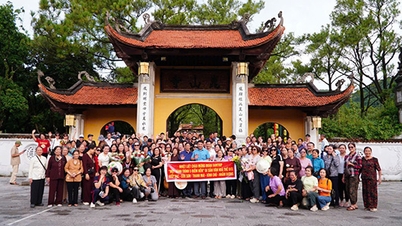













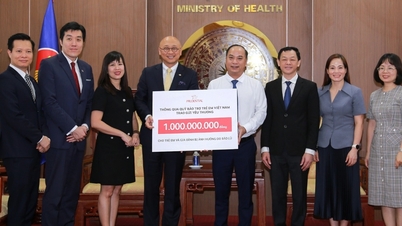

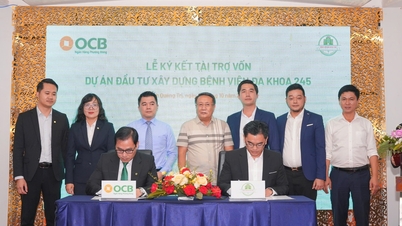







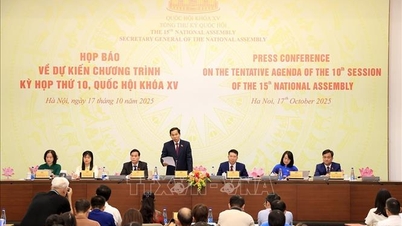
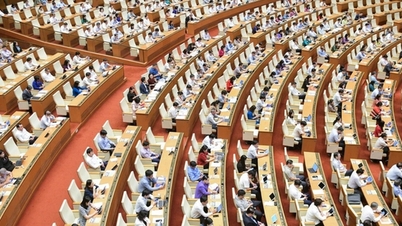



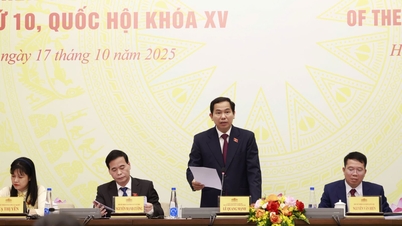

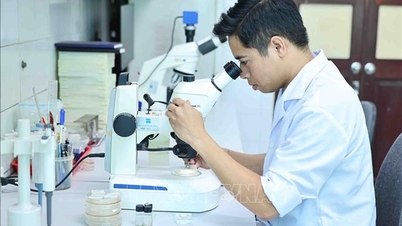
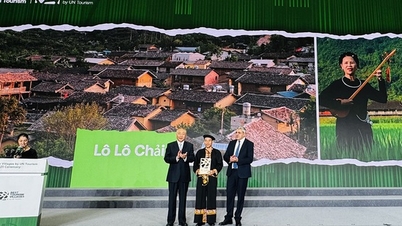

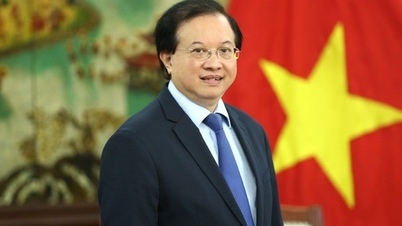
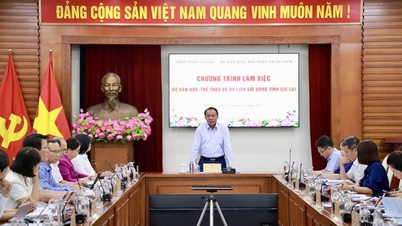
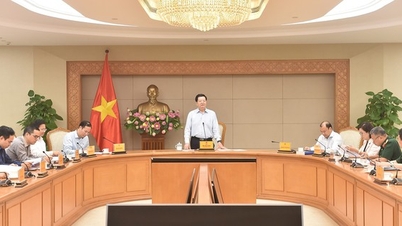
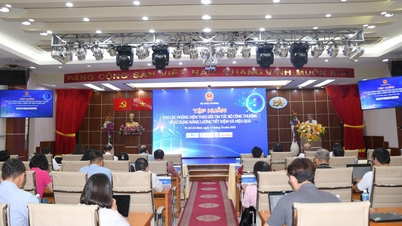

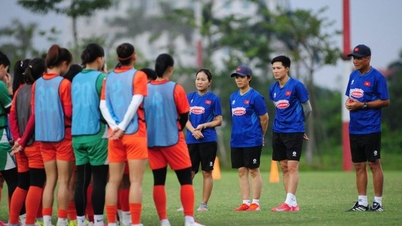


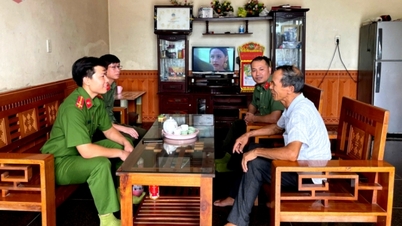

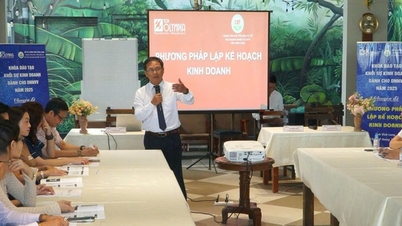



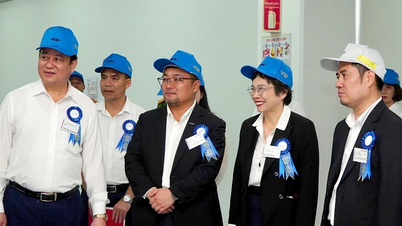
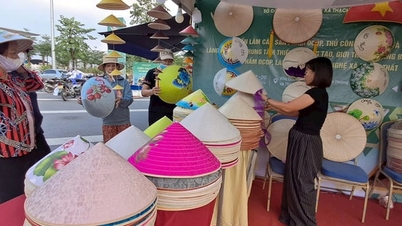










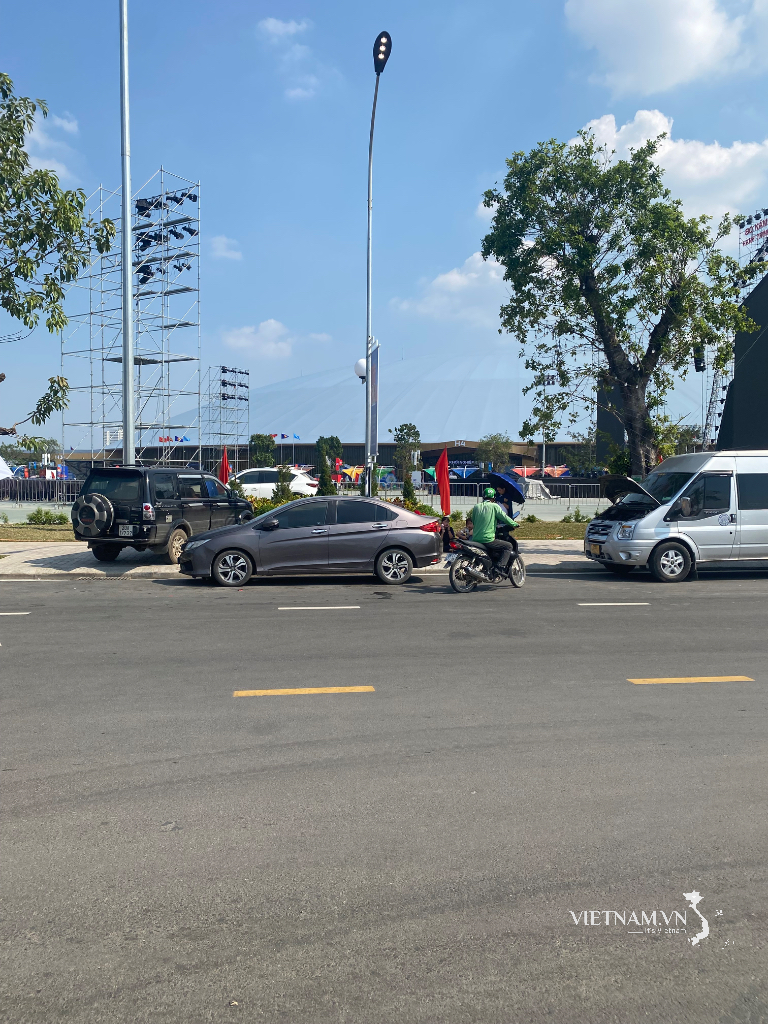
Comment (0)